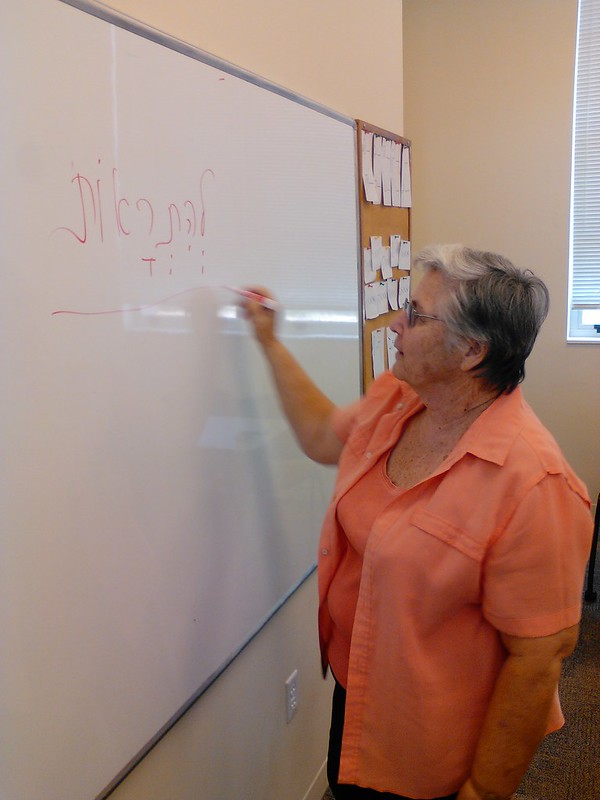
Adjunct professors now lead more and more classes at New College and other schools nationwide. Half of all professors in the country are adjuncts or contingent faculty, according to the American Association of University Professors. Tenured professors, by comparison, now represent less than a quarter of all college faculty.
Adjunct professors are unique in that they share the same instructional duties as tenured faculty, yet earn significantly less and are not subject to benefits such as health insurance, unless they earn 30 hours or more from their school.
“My workload as an adjunct varies quite a bit and really depends on the specifics of each week’s course activities,” Professor of Natural Sciences Katherine McHugh said. “But for a single course, I typically put in at least 25-30 hours a week preparing course material and assignments, evaluating student work, and communicating with students.”
McHugh has been an adjunct at New College since Fall 2012, and has taught three different introductory courses over the years, including this semester’s Natural Hazards. She also holds a full-time position as a research scientist off-campus in addition to her responsibilities as a professor, and receives some retirement benefits from the state.
A March 2015 survey with a sample of 500 adjuncts and conducted by Pacific Standard reported that the average annual pay of a majority of adjunct respondents is less than $20,000 a year. According to The Atlantic, 31 percent of part-time faculty are living near or below the federal poverty line, and many adjuncts work other jobs in order to supplement their income and help cover an array of expenses that continue to rise.
City-Data.com reports that the average monthly housing costs for homes without a mortgage in Sarasota had risen to $502, and $1,280 for houses with a mortgage in 2013. A survey of more than 10,000 part-time faculty members conducted by the AAUP found that from 2012-2013, adjunct professors earned a median of $2,700 for one class over the course of a semester. However, New College adjuncts are reported to generally make $4,000 or more over the course of one semester.
Conditions for many adjuncts had gotten so bad that on Feb. 25 of this year, adjuncts across the country mobilized to insist on better wages and working conditions in an event called National Adjunct Walkout Day.
Professor of Hebrew Rachel Dulin maintains that after five years as an adjunct, she sees little difference between her position and that of a tenured professor.
“It seems to me that if you are teaching, you are teaching.” Dulin commented. “But the truth is that when you think about an adjunct professor, and it’s only three or four hours, you think: ‘oh, it’s part time’. But if you do it right, there is no part-time job.”
Dulin teaches all levels of Hebrew at NCF, and holds two classes three times a week. Every Wednesday, she also teaches an advanced tutorial for students to further hone their skills in the language. She previously held a position as a tenured professor in Chicago.
“It’s not the money that brings me here, what brings me here is the excitement of the study and teaching environment,” Dulin added.
McHugh and Dulin are two of 15 adjuncts who are part of the New College faculty for the current semester. The job security for New College adjuncts also appears to be much greater than elsewhere, as many other adjuncts have also consistently held positions for more than one term.
McHugh reflected positively on her own experiences working with New College over the past three years. “The classes I have taught so far are somewhat unique interdisciplinary additions to the New College catalog, and I’m glad to be able to bring a different perspective.”
After holding positions both as an adjunct and as a non-adjunct professor, Dulin reflected proudly on her own contributions to the New College community. “When you are in a position where you can open the doors for someone intellectually, and you see that the eyes open with a smile, it’s a great, great feeling.”
